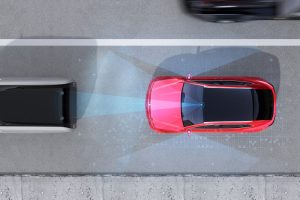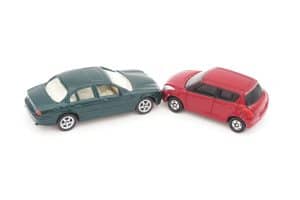
- The Savvy Promise
At Savvy, our mission is to empower you to make informed financial choices. While we maintain stringent editorial standards, this article may include mentions of products offered by our partners. Here’s how we generate income.
If you’re buying a valuable new or near-new vehicle, you may be required to pay the Luxury Car Tax (LCT) on the purchase. It’s important to understand what this is and how it works before you buy your vehicle, however, so you can find out all about it right here in Savvy’s comprehensive guide!
What is Luxury Car Tax?
The Luxury Car Tax (LCT) in Australia is a tax imposed on new or imported passenger cars (including demonstrators) that are less than two years old and exceed a specific value threshold, including GST. This tax is payable either by individuals who import cars themselves or by businesses (such as dealers) who import or sell cars above this threshold.
If you’re buying a car above this threshold, LCT will be incorporated into the purchase price of your vehicle by your dealer. Your dealer will pay this when buying or selling the car and pass the cost onto you, meaning there’s no need for you to calculate this yourself.
What are the current Luxury Car Tax thresholds?
According to the Australian Taxation Office (ATO), the threshold for LCT is as follows for the 2023-24 financial year:
- $89,332 for all fuel-efficient vehicles, which are defined as having a combined fuel consumption of 7L/100km or lower (such as electric, hybrid and green vehicles)
- $76,950 for all other vehicles that don’t meet the ATO’s fuel-efficient classification
As you can see, buyers of more eco-friendly vehicles such as electric and hybrid models are incentivised by the increase of almost $12,500 to the LCT threshold.
How is Luxury Car Tax calculated for my car purchase?
In basic terms, LCT is calculated at a rate of 33% for every dollar spent above the threshold. The formula the ATO uses to calculate LCT is as follows:
(LCT value – LCT threshold) x (10 ÷ 11) x 33%
Take the following situation as a practical example of LCT calculations:
The Cool Motors dealership sells a Cool Cruiser worth $85,000, inclusive of GST. It doesn’t qualify as a fuel-efficient vehicle, which means the lower LCT threshold of $76,950 would be enforced in 2023-24. As a result, using the above formula, Savvy Motors would calculate the LCT on the Cruiser as:
- ($85,000 – $76,950) x (10 ÷ 11) x 33%
- 8,050 x (10 ÷ 11) x 0.33
- LCT payable = $2,415
To cover the LCT cost upon the model’s sale, Cool Motors could then set the retail price at $87,415.
What costs aren’t included in Luxury Car Tax calculations?
As can be seen in the calculations above, the following costs aren’t considered when calculating the chargeable LCT on your vehicle purchase:
- Vehicle registration
- Stamp duty on the car purchase
- Transfer fees
- Finance costs, such as loan interest or fees
- Compulsory third party (CTP) insurance
- Any non-compulsory insurance policies
What are the exemptions for Luxury Car Tax?
The ATO has outlined the following circumstances under which LCT isn’t payable. These are:
- The car buyer quotes their ABN (business must be GST-registered) in the approved format
- The car hasn’t been imported and was manufactured more than two years before the sale
- The car was imported more than two years before the sale
- The car is classed as a GST-free export
- The car is (or is intended to be) registered for use as an emergency vehicle such as an ambulance or firefighting, police or search and rescue vehicle
- The vehicle is a motor home, campervan or commercial vehicle designed mainly for carrying goods, rather than passengers
- Modifications made to a vehicle for people with a disability
- On LCT values on which LCT has already been paid
- An endorsed public institution (museum, gallery or library that is registered for GST and endorsed as a deductible gift recipient) either imports a car that is a work of art or collectors' piece for the sole purpose of public display or sells a car that was purchased as a work of art or collectors' piece for the sole purpose of public display to another endorsed public institution that also intends to use that car solely for public display
Will I have to pay Luxury Car Tax on a used vehicle that has already been taxed?
As mentioned above, your car’s LCT value isn’t taxable if the LCT has already been paid on it. If the used car you’re buying is older than two years, you also won’t have to pay LCT. However, you may have to pay LCT on a car which has appreciated since being purchased last time.
For instance, if you buy a car meeting all the other criteria which has increased in value by $1,500 since it was first purchased, that $1,500 would be subject to LCT.
Popular cars subject to Luxury Car Tax
Prices correct as of 19 April, 2024.
If you’re looking to purchase a luxury car, you can compare a range of car loan products right here with Savvy.
Did you find this page helpful?
This guide provides general information and does not consider your individual needs, finances or objectives. We do not make any recommendation or suggestion about which product is best for you based on your specific situation and we do not compare all companies in the market, or all products offered by all companies. It’s always important to consider whether professional financial, legal or taxation advice is appropriate for you before choosing or purchasing a financial product.
The content on our website is produced by experts in the field of finance and reviewed as part of our editorial guidelines. We endeavour to keep all information across our site updated with accurate information.
Approval for car loans is always subject to our lender’s terms, conditions and qualification criteria. Lenders will undertake a credit check in line with responsible lending obligations to help determine whether you’re in a position to take on the loan you’re applying for.
The interest rate, comparison rate, fees and monthly repayments will depend on factors specific to your profile, such as your financial situation, as well others, such as the loan’s size and your chosen repayment term. Costs such as broker fees, redraw fees or early repayment fees, and cost savings such as fee waivers, aren’t included in the comparison rate but may influence the cost of the loan. Different terms, fees or other loan amounts may result in a different comparison rate.








